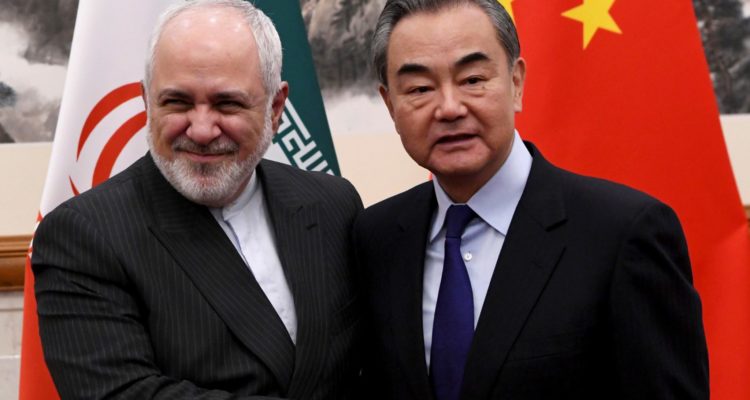Iran’s Foreign Ministry spokesman said the deal “can elevate bilateral ties to a new strategic level.”
By David Isaac, World Israel News
Iran and China’s 25-year strategic cooperation agreement inked on March 27 will provide Iran billions in Chinese investment in return for Iranian oil.
The agreement, or “Comprehensive Strategic Partnership,” covers economic activities ranging from oil to agriculture. Iran will also gain access to Chinese military technology.
According to The New York Times, the deal calls for China to invest $400 billion in Iran over the 25-year period.
“The deal marked the first time Iran has signed such a lengthy agreement with a major world power,” the Associated Press reports, surpassing one signed by Iran and Russia in 2001.
Iran’s Foreign Ministry spokesman Saeed Khatibzadeh said on Friday that the deal is “deep, multi-layer[ed] and full-fledged” and “can elevate bilateral ties to a new strategic level.”
It was signed by Iran’s Foreign Minister Mohammad Javad Zarif and Chinese counterpart Wang Yi. Before the signing, Yi met Iranian President Hassan Rouhani and special Iranian envoy in charge of the deal Ali Larijani.
Critics say the new partnership will become an end run around U.S. sanctions, as Iran has now established a long-term oil buyer. If Iran once more becomes flush with cash it can increase its support to its terror proxies in the region.
The deal also strengthens China’s presence in the Middle East, “which it wants for access to energy and raw materials as well as to increase its economic sway,” a Wall Street Journal editorial notes on Tuesday.
The geopolitical ramifications may go beyond the Middle East.
The Journal says, “The countries will also form a Chinese-Iranian bank with the aim of evading the U.S. dollar dominance in world trade that gives U.S. sanctions their bite.
“Breaking the dollar’s hold on global trade and finance is a major goal of Russia, China and Iran. China believes that U.S. fiscal profligacy is putting the dollar’s role as the world’s reserve currency at risk, and they want the Chinese yuan to replace it.”
Others have downplayed the agreement. A Bloomberg op-ed says, “For all the Iranian hype, the deal is not so much a ‘partnership’ as a promissory note espousing better economic, political and trade relations between the two countries over the next quarter-century.”
It also claims that on agreements important to China, President Xi Jinping signs the deal, not his foreign minister.
The Journal says of those who want to dismiss the deal, “Don’t believe them. This is a big deal that advances the strategic interests of both sides — at the expense of the U.S. and stability in the Middle East.”





